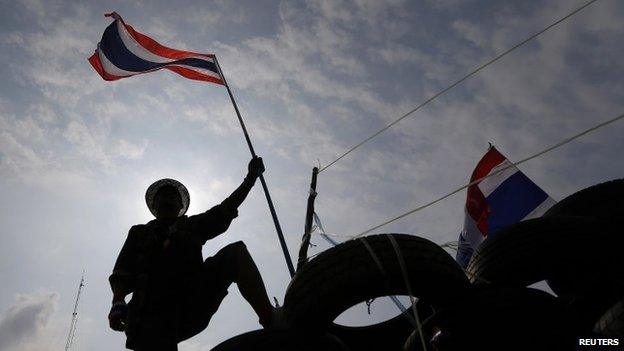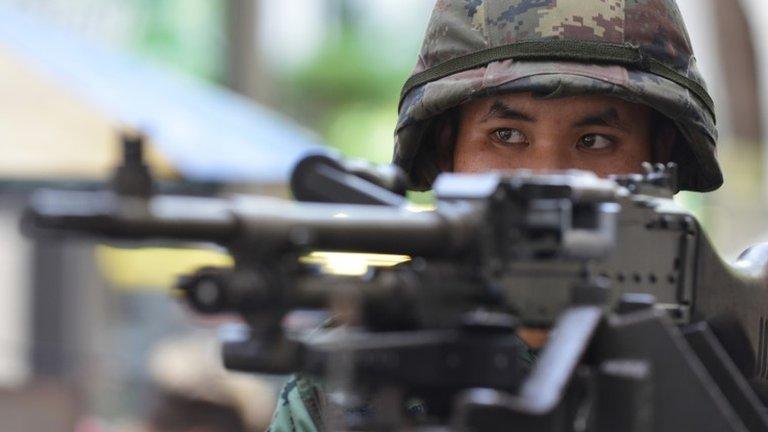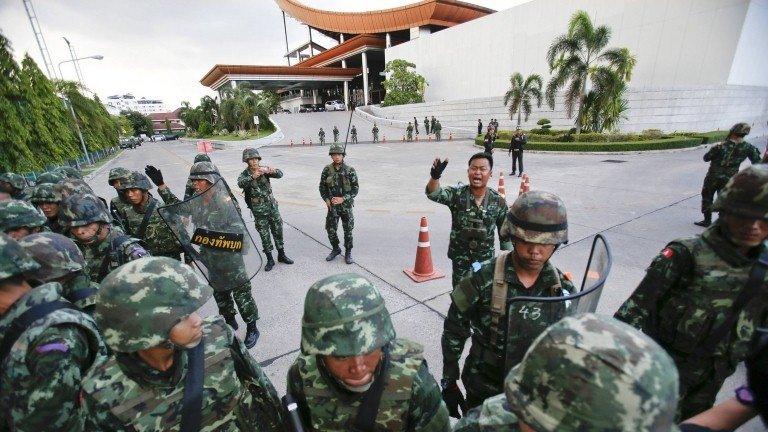Thailand's military-backed council debates new constitution
- Published

Thailand has seen almost a decade of political strife and sporadic street violence
Thailand's military-picked reform council has begun a week-long debate over a new constitution, almost a year after a military coup.
A draft, submitted last week, sparked controversy over a clause that allows immunity for the generals who seized power in May last year.
Also causing concern is a clause which would allow unelected individuals to be appointed prime minister.
Thailand has seen almost a decade of divisive political conflict.
The previous constitution was abolished by the military after the coup. The current government operates under a temporary charter.
"We have drafted this constitution as it is a reform one, in hopes of leading the country out of cycles of conflicts, disunity and undemocratic fights," Gen Lertrat Ratanavanich, a spokesman for the Constitution Drafting Committee, told the AP news agency.
"I'm confident this constitution will provide justice to every side [of the conflict], more than the previous charters."
Deeply divided
Under the new draft, future elections will be decided by a proportional representation system that leans towards smaller parties and coalition governments.
The upper house will mostly be unelected members; and the charter will allow parliament to choose as prime minister someone who is not a politician or an MP.
The BBC's Jonathan Head in Bangkok says the probable outcome of the new constitution will be weak and short-lived coalition governments, which would leave more power in the hands of the military and of senior, largely royalist bureaucrats, many of whom supported the coup.
The constitutional draft will be debated for six days, our correspondent adds, after which there will be very few opportunities for public discussion.
The military has ruled out a referendum but plans instead to seek opinion from a thousand selected respondents in each of Thailand's 77 provinces.
Critics say the constitution is aimed at preventing the return of former Prime Minister Thaksin Shinawatra.
He was ousted in 2006, after being accused of corruption and now lives in self-imposed exile.
Since then, Thailand has been deeply divided as his supporters and opponents struggle for political control, with the conflict sometimes spilling over into street violence.
- Published22 May 2014

- Published7 March 2019
- Published22 May 2014
